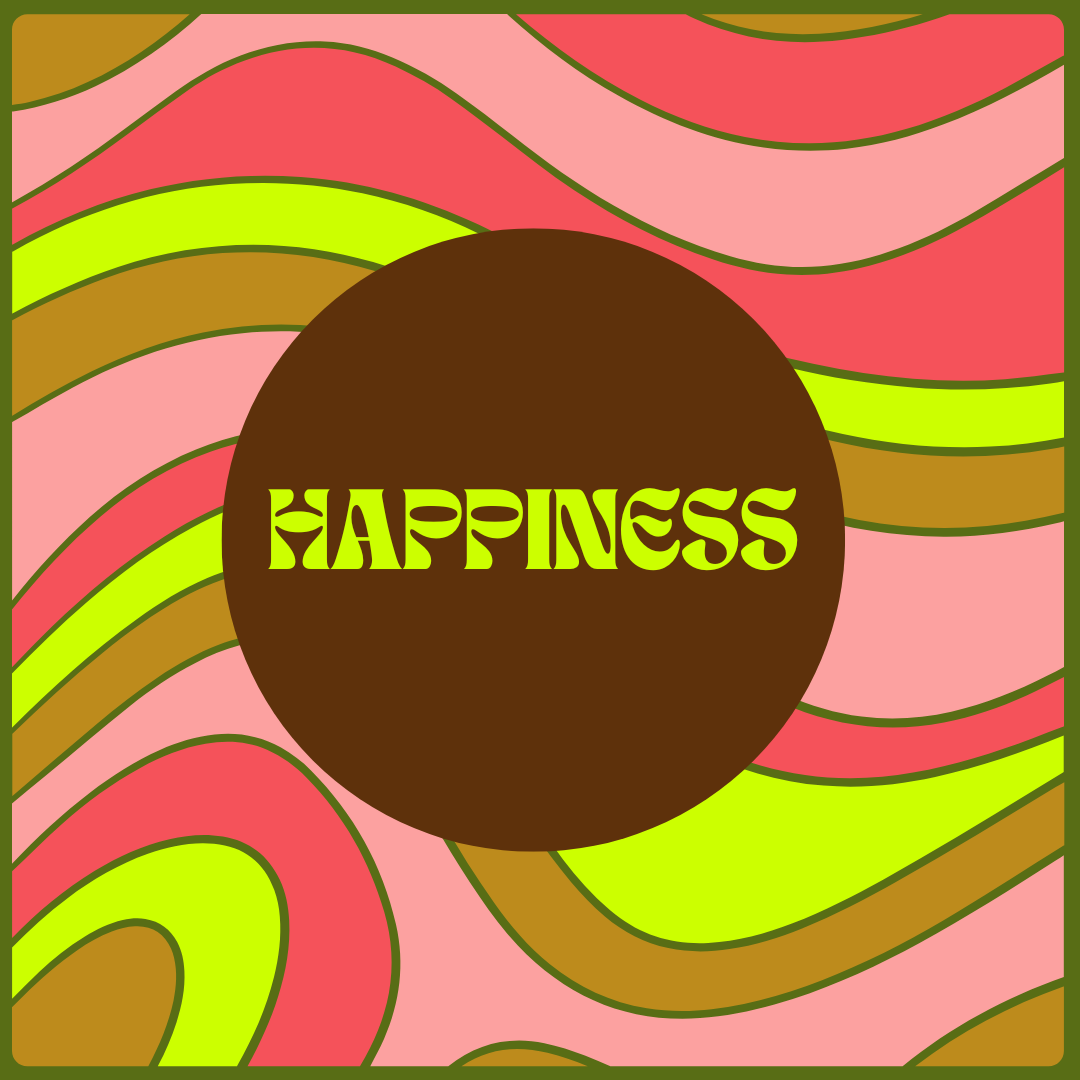I was at a kids’ party about a year ago and I got talking to this woman. She had a kind, open face and this electric energy - not intense; just buzzing - that made me want to get to know her.
To get a bit ‘woo’ on you: she also had an exuberantly glowing aura.
It turned out she already followed me on Instagram so I followed her back and have spent the intervening months watching her Stories, looking at her posts and thinking: Why is this woman so happy?
I sent her a message, asking what she does for a job.
You see, as well as seemingly gliding through life with a perpetual smile on her face, she writes these excellent reviews of books. Just a few lines each, and I often end up buying the books.
She told me she works in insurance.
I was surprised.
It’s not the line of work I’d necessarily equate with everyday joy. And yet she probably gets paid pretty well, feels stable in her job and can afford lovely holidays with her family (and to buy lots of books).
She said she doesn’t love her job, and would have liked to have been a writer but isn’t sure how she’d get into it. I gave her a few tips for how she might venture into book-reviewing and journalism, but what I wish I’d said is:
Maybe reading the books you want to read and reviewing them for friends and family on Instagram is enough?
Once we seek publication and payment, writing becomes pressurised.
Reading would, too, if you had to read certain books within a specific timeframe and then submit it to an editor who may well ask you to re-write it, or at least make some changes that feel unaligned with your vision.
I’m saying this as a freelance journalist (I’ve been writing articles for publication since 2008) and a published non-fiction author (two books published already, the third coming out in a few weeks).
I will also admit that I have never been happier, in terms of my career, than I was while writing my latest non-fiction book: Raise your SQ.
It was an immensely joyful two-month period but that was mostly because I was practising what I was teaching (increasing my own spiritual intelligence) during the process.
And also: I had a clear focus.
I knew what I was doing every single day while writing that book. I wasn’t scrambling around for clients or commissions - I was researching, interviewing and writing.
According to Dr Louise Lagendijka - a brilliant medical-turned-holistic doctor I interviewed for the book - this is the most underrated element of good mental health.
And that has really stayed with me.
We need focus, to earn a good living and to create. In that order.
When we have this huge part of our lives covered - and, as adults, it is huge: many of us spend nearly 50% of our waking hours working - this is a good foundation upon which to build everything else.
Ideally, we’d all strive for love, connection and creativity first - and above all - but sadly, that’s not the world we live in. We need food and shelter, too. And they cost money. And when we don’t have them, we don’t feel so much love and connection.
I will interject with the probably unnecessary assurance that the love I have for my family and friends far supersedes the love I have for my work… but when I’ve been worried about money, and career, I turn into a bit of a shit.
I’m not that nice to be around.
And I find it harder to be a good mother, wife, daughter, sister, friend and neighbour.
So while we can say that happiness starts with love, connection and creativity, I’m increasingly seeing that in fact, those things can be quickly disrupted by a lack of focus, personal stability and fulfilment.
Making a living from your art
In terms of making a living from your art, I’ve seen it from both sides: desperately trying to break into journalism and having books published; experiencing what it’s like when it happens.
It’s flipping exciting when you see your first byline in a national, your first published book on the Waterstones bookshelf or a poem go viral…
But that feeling is fleeting.
Your ego is happy, your hard work has paid off… and now, what’s next?
It’s back to ideas, planning, pitching, rejection, being ignored, pitching again, getting a commission - and the very long journey between that and publication (and payment).
I don’t mean to sound gloomy about all this and I do have a solution. But first, briefly, another example of a career-contented person I know.
She lives in the Alps, works as an accountant - for the stability and decent pay - and spends every moment she isn’t working out in nature: skiing, snow-boarding, walking up mountains.
She has her job; she has her life. The two do not blend.
Again, there is a simplicity that seems to make her day-to-day life seem pretty chilled.
Bridge jobs and polywork
I recently read about ‘bridge jobs’ which are jobs you might take while working towards your dream career.
Crucially, this job must be connected with the future dream job. So if you want to be a published author, perhaps you’ll get a job in publishing, or writing advertising copy,
I think this advice is wrong.
What I believe is the more fulfilling, stable and joyful way to work is polywork. Or - one I’ve coined myself - relay work.
Keep reading with a 7-day free trial
Subscribe to Annie Ridout to keep reading this post and get 7 days of free access to the full post archives.





